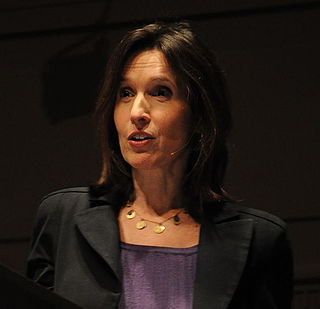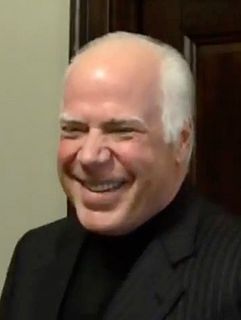A Quote by Katrina vanden Heuvel
It seems to me both moral and practical that in the richest in nation in the world that someone working full time shouldn't live in poverty. And studies over the last 20 years in states where we have seen these minimum wage increases show there's no discernible impact on employment growth. In fact, what it does is line low-wage workers' pockets with higher wages.
Related Quotes
[A] family with two kids that earns the minimum wage still lives below the poverty line. That's wrong. That's why, since the last time this Congress raised the minimum wage, 19 states have chosen to bump theirs even higher. Tonight, let's declare that in the wealthiest nation on Earth, no one who works full-time should have to live in poverty, and raise the federal minimum wage to $9 an hour.
Sharp increases in the minimum wage rate are also inflationary. Frequently workers paid more than the minimum gauge their wages relative to it. This is especially true of those workers who are paid by the hour. An increase in the minimum therefore increases their demands for higher wages in order to maintain their place in the structure of wages. And when the increase is as sharp as it is in H.R. 7935, the result is sure to be a fresh surge of inflation.
Raising minimum wage doesn't just benefit the workers behind me, it creates a proven ripple effect that increases wages all the way up the scale. ... Let's get the facts straight, only 20 percent of people making the minimum wage are teenagers. The rest are hardworking adults, many of them with families, and I mean hardworking.
Raising the minimum wage and lowering the barriers to union organization would carry a trade-off - higher unemployment. A better idea is to have the government subsidize low-wage employment. The earned-income tax credit for low-income workers - which has been the object of proposed cuts by both President Clinton and congressional Republicans - has been a positive step in this direction.
If a market exists for low-paid work, then we should think about how we can make this type of work more attractive by providing government assistance. Of course, the wage-earner must be able to live off of his wages. We will not allow poverty wages or dumping wages. But the wage earner can receive a combined wage that includes both his actual wages and a government subsidy.
Minimum wage laws tragically generate unemployment, especially so among the poorest and least skilled or educated workers... Because a minimum wage, of course, does not guarantee any worker's employment; it only prohibits, by force of law, anyone from being hired at the wage which would pay his employer to hire him.
[E]conomic liberty and creative entrepreneurship are the basis of any solution to today's social and economic difficulties. Blaming business, setting wages, and attempting to run the economy by decree from Washington only exacerbates the problems. Consider the minimum wage. It seems so simple: Tell business to pay its workers more. But a hike in the minimum wage is essentially a tax, punishing precisely those companies that hire workers with the least skills.



































